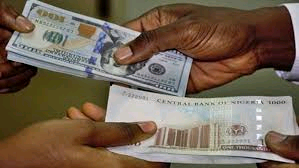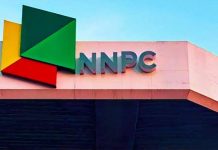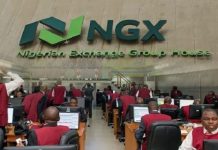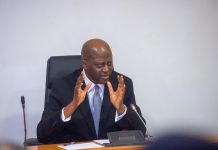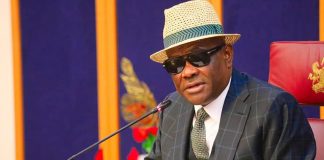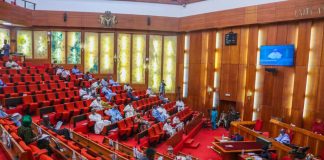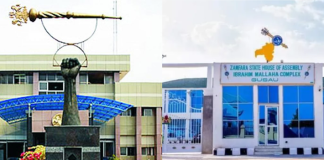🌿 Ruzu Non-Alcoholic Herbal Bitters
Ruzu Non-Alcoholic Herbal Bitters is a natural health supplement specially formulated to:
- ✅ Promote general wellness
- ✅ Detoxify the body
- ✅ Support the treatment of various ailments
Made from a powerful blend of 100% organic and medicinal herbs, Ruzu is completely alcohol-free, making it ideal for:
- 👪 All age groups
- 🌱 Health-conscious individuals
- 🌿 Anyone seeking non-alcoholic herbal remedies
Whether you're looking to boost your vitality, cleanse your system, or support healing the natural way, Ruzu Bitters offers a trusted herbal solution.
CBN pays FX backlog, clear path for naira and inflation stability
By Naomisophyblog
In a significant development with the potential to revitalize Nigeria’s economic landscape, the Central Bank of Nigeria (CBN) has taken decisive steps to clear a long-standing backlog of foreign exchange (FX) obligations, some of which date back to as far as March 2023.
This move, highly anticipated by the financial and business communities, is poised to boost investor confidence and provide a substantial stimulus to the national economy.
The CBN’s commitment to settling these obligations is a much-needed relief, particularly for the international banking sector and major international airlines like Etihad, Emirates, and Ethiopian Airlines, which have been awaiting payment of their outstanding dues.
Only days ago, President Bola Tinubu pledged to clear the estimated $7 billion in outstanding foreign exchange obligations owed to banks as part of foreign currency forward contracts.
President Tinubu made this announcement during his speech at the 29th Nigerian Economic Summit in Abuja, where he acknowledged the challenges faced by the business community in the financial markets and assured them of additional foreign exchange liquidity to restore market confidence.
Regarding the FX backlog, he emphatically declared, “The government will honour all foreign exchange future contracts.”
Subsequently, various sources have confirmed that the CBN has already begun to fulfil this promise by settling some of its FX obligations with select banks, including Citibank, Stanbic IBTC, and Standard Chartered, among others.
This development represents a significant step forward in addressing the FX backlog that has been undermining investor confidence in the Nigerian economy.
Furthermore, the Minister of Finance and Coordinating Minister of the Economy, Wale Edun, disclosed that the country is anticipating approximately $10 billion in inflows in the near term.
This influx of foreign currency will play a crucial role in clearing the FX backlog and stabilizing the Nigerian Naira, instilling renewed optimism and economic stability in the nation.
Edun pointed out various sources contributing to this expected inflow, including increased production, reduced expenditure, forward sales, and investments from sovereign wealth funds.
As Nigeria moves closer to resolving its FX obligations and strengthening its financial position, the outlook for its economy appears increasingly promising.
Read Also:“Obidient Movement Is Revolution Postponed”- Peter Obi Hints at 2027 Presidency
Nigerians can look forward to impending relief as the CBN addresses the FX backlog, laying the foundation for the stability of the Naira and inflation.

